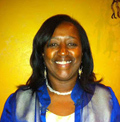 Rwanda will this week (March 11) become the first country to introduce a combined measles and rubella vaccine with the support of international donors.
Rwanda will this week (March 11) become the first country to introduce a combined measles and rubella vaccine with the support of international donors.
Speaking to Vaccines Today, Rwanda’s Minister for Health, Dr Agnès Binagwaho, said her country was steadily decreasing child mortality and hoped the rubella vaccine programme would dramatically reduce the number of babies born with birth defects.
“We have reduced measles rates because we have a very good rate of vaccination – it’s above 90%. But it’s not just measles. Vaccination rates are well above 90% for 11 childhood vaccines today,” she said.
Until now, people in Rwanda had not had access to rubella vaccination. This increased the risk of congenital rubella syndrome (CRS) for babies whose mothers contracted rubella during the first three months of pregnancy. It is estimated that in Rwanda about 110,000 children are born with CRS each year.
CRS affects the normal development of several of the baby’s organs and can result in a range of serious health problems ranging from deafness and cataracts to heart problems and mental retardation.
This week, in just three days, an army of health workers will aim to vaccinate 5 million children in an effort to reduce this risk.
“Before this week we had no rubella protection for the foetus so women were giving birth to babies suffering abnormalities. Our measles and other immunisation programmes have proven to be useful so when we were given this chance to provide good care to our children we go for it,” Minister Binagwaho said.
Global support, local action
A measles vaccine catch-up programme for adults and older children will attempt to increase vaccine coverage for those who were children before Rwanda began to invest in routine immunisation with the support of international partners such the GAVI Alliance as well as WHO, UNICEF, the Measles & Rubella Initiative and USAID.
“GAVI have made great contribution and they can be proud of the number of lives they have saved here. I like the way they help countries and that they make them accountable – they are very strict on use of money. I also like that they are flexible so that their money is used for what you need not something decided in Geneva,” she told Vaccines Today.
Five more countries – Bangladesh, Cambodia, Ghana, Senegal and Viet Nam – are expected to introduce the combined measles-rubella vaccine later this year with the support of GAVI.
Public trust
Rwanda has also led the way in introducing the HPV vaccine against four genotypes of the virus which cause cervical cancer or genital warts. Minister Binagwaho said uptake of the HPV vaccine is greater than 93% in the first two years since it was introduced and this has had a major impact on public health.
So, when rolling out major measles and HPV vaccine campaigns, has Rwanda experienced any problems with public trust in vaccines or observed hesitancy from parents?
“No. We come from a population that was not healthy 20 years ago. They were dying from measles; women that were affected by cervical cancer were in danger. So when you proposed a good tool based on science and give a full explanation, the population is very happy. Vaccination is not mandatory but uptake is very high because families want the best for their children.”
Dialogue – online & offline
Communication is crucial, she says, in order to address directly public concerns. The Health Minister runs a weekly Twitter Q&A session called Minister Mondays (#MinisterMondays) where the public can post questions or comments. It has been a big hit.
“The population likes it. They love the interaction. The dialogue helps them by answering their questions and giving them access to the Minister but it also helps me to understand what the public is interested in and to see if our communication efforts are working on the ground.”
Of course, not everyone in Rwanda is online and fewer still are on Twitter. How does Minister include this offline majority?
“I have a telephone number. We have given 50,000 phones to community health workers so people in villages can contact their local representative who can pass on the question during Minister Monday,” she explains.
Making a difference
Rwanda’s success has won Minister Binagwaho much praise in the international health community and global media. Is she proud of her legacy?
“My legacy is the legacy of the government; I’m proud to work for a people-oriented government. I work with the Minister for Local government who is very important because power in our country is decentralised. The Education Minister is important because we deliver vaccines in schools. The Minister for Finance is important because there is cost involved. The Minister for Energy is important so that we can secure the cold chain when transporting vaccines. It’s a collective effort to ensure nobody is left out.”




